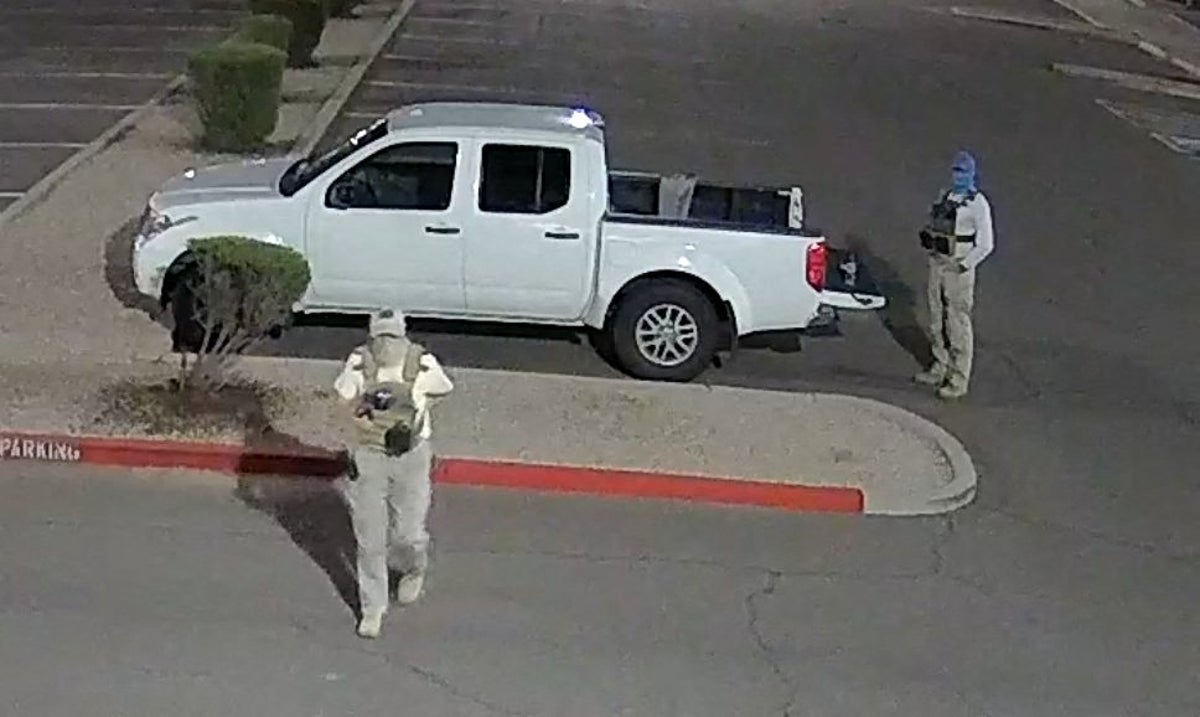
A federal judge has blocked a far-right activist group and its supporters from taking photos and video of people casting ballots, openly carrying firearms near ballot boxes and spreading baseless claims about election laws in Arizona, following a voting rights group’s lawsuit that accused the group of intimidating voters.
US District Judge Michael Liburdi, who was appointed by Donald Trump, issued a temporary restraining order on 1 November against Clean Elections USA and its founder Melody Jennings, who encouraged volunteers to stake out drop boxes where voters can deposit their mail-in or absentee ballots.
Conspiracy theorists and far-right activists have conflated voters using drop boxes with “mules” illegally hoarding ballots, or have falsely accused absentee or mail-in ballots as being fraudulent or illegitimate.
The judge required Ms Jennings to post on her Truth Social account that “it is not always illegal to deposit multiple ballots in a ballot drop box” and that “it is legal to deposit the ballot of a family member, household member, or person for whom you are the caregiver.”
She also was required to post a copy of the state’s election laws regarding ballot drop boxes.
Ms Jennings posted the statement to her account on Tuesday morning.
Central to the case are widespread, baseless claims that the 2020 presidential election was stolen from the former president, including widely debunked and discredited theories amplified by Dinesh D’Souza’s film 2,000 Mules that ballots were illegally cast using drop boxes, manipulating the outcome for Joe Biden’s victory.
The judge’s order follows a pair of lawsuits against Clean Elections USA after several people, including armed men in tactical gear, were discovered staking out ballot boxes or filming voters and photographing their license plates.
The US Department of Justice also has submitted a statement of interest in one of the Arizona lawsuits, filed by the League of Women Voters.
A filing suggests that “vigilante ballot security measures” – such as filming voters at drop boxes – is likely a violation of the Voting Rights Act.
“When private citizens form ‘ballot security forces’ and attempt to take over the state’s legitimate role of overseeing and policing elections, the risk of voter intimidation – and violating federal law – is significant,” according to the filing.
“While the First Amendment protects expressive conduct and peaceable assembly generally, it affords no protection for threats of harm directed at voters,” the Justice Department’s lawyers wrote.
Last week, Judge Liburdi declined a request for a temporary restraining order and preliminary injunction in a related suit, arguing that doing so could infringe on monitors’ First Amendment rights to freely assemble.
Arizona’s Secretary of State Katie Hobbs said her office has referred at least six incidents of alleged voter intimidation to federal law enforcement, and the US Attorney’s office in Arizona is considering “several federal felony charges from alleged criminal activity” in the state.
During a five-hour hearing in the Arizona case on Tuesday, a 51-year-old voter testified that “bullies” with cameras accused him and his wife of being “mules” while they dropped off their ballots at a drop box in Mesa.
He said that his wife was in “complete shock” and wanted to leave without voting, “convinced [that] the people photographing us were there for ill will.”







